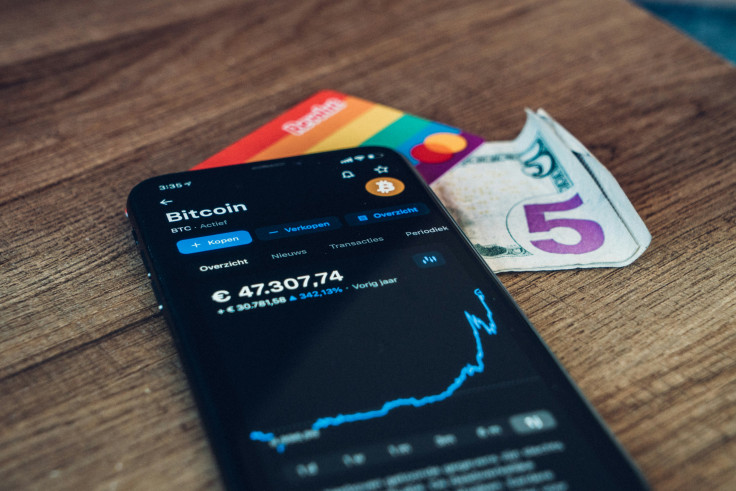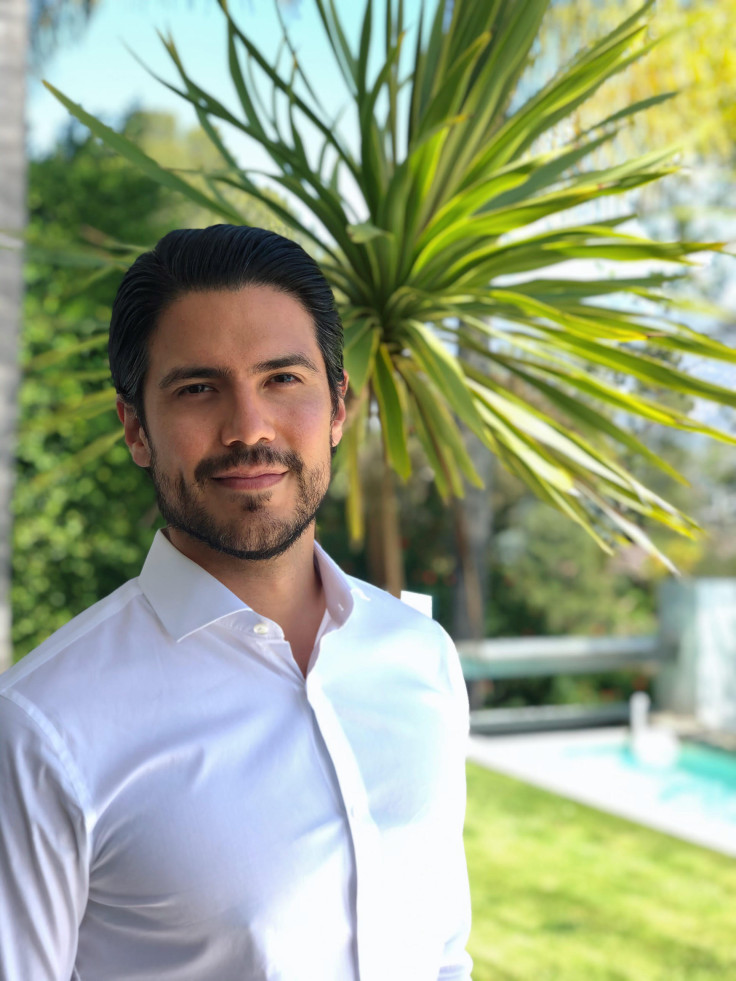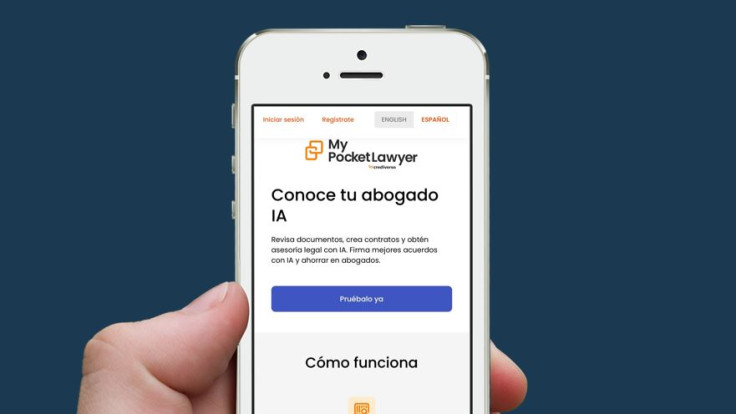
"There is a big disparity in the levels of financial access among Latinos in the U.S. and the general market. As you look at every financial product vertical, whether that is loans, insurance, credit card, bank accounts, the adoption rates are very different," says Carlos Hernández, founder of Crediverso, when explaining the demographic's growing interest in crypto.
In the U.S., Latinos emerge as the most interested demographic in cryptocurrency, and, according to Hernández, the appeal of Bitcoin can be explained because it serves as one of the ways the Hispanic community has found as "a pathway to wealth building outside of the traditional financial ecosystem."
Hernández, an attorney in California with an MBA from Harvard, was raised in a Latino household in Los Angeles. From a very young age he observed the challenges his community faced, including language barriers, when trying to access financial wealth.
"We started Crediverso to try to make the formal financial ecosystem as accessible as possible to the Hispanic community. It's almost 20% of the population. It is the fastest growing portion of the country, very entrepreneurial, but it has not traditionally had the same access," he explains to The Latin Times about the platform, which specializes in helping the Latino community navigate legal and financial systems through bilingual tools and education.
Beyond education, Crediverso also introduced a new platform called 'My Pocket Lawyer,' which is an AI tool designed to review contracts or legal documents. "What's interesting about the U.S. is that if you have a criminal legal issue, you're guaranteed you will have a lawyer. But if you have a civil legal issue, you do not, and you may not be able to get a lawyer, especially if you can't afford one. The average hourly rate is somewhere around $215," he summarizes.
*The following interview has been edited for clarity and length.
-Why are levels of participation in the realm of personal finance lower among Latinos in the U.S.?
-This disparity can be attributed to several factors, including lower personal finance knowledge, language barriers, experiential barriers, economic barriers. You could have a brilliant credit score in your home country, but if you arrived in the U.S., where nobody's ever loaned to you before, they don't know if you're credit worthy or not, and you may not have a credit score at all. I would say many Hispanics remain pretty disconnected from mainstream financial institutions, which just even underscores the importance of financial education within this demographic.
-And this is the same for Latinos born in the U.S. than for immigrants?
-There are challenges that are unique to the immigrant population that dissipate over time as you get into the second and third generation, starting just with the primary one, which is language access. There are still many communities in the U.S. where Spanish is the only language spoken in the household. But not only that: it's the only language that's spoken at work. All of the media is consumed in Spanish, and so you can really live in a Spanish speaking enclave without ever having to speak English in the US, and many immigrants to this country do.
There is a regulatory framework that produces that situation amongst banks, because there are so many ambiguous rules around whether banks should offer products in Spanish. And, unfortunately, the result is that that leaves a lot of consumers out of the formal financial ecosystem because they simply can't access products like bank accounts, debit cards and credit cards. Something positive within the Hispanic community is the higher adoption of financial technology tools compared to other communities. We see a pretty strong inclination towards digital platforms for managing personal finance for mobile banking apps, or online money transfer services, which is big, because of remittances.

Can you explain what remittances are, and what related challenges are facing Latinos?
In immigrant communities, you frequently have family members who are supporting other family members living abroad. So you'll have a father or mother who will move here to the U.S.. They'll get a job, they'll earn money in U.S. dollars, and they will send money back and, you know, in pesos or dollars to Mexico or to El Salvador. There are really great products out there like Xoom or Western Union, names that our users will be very familiar with. Now, the challenge with those products is that they often come associated with very high fees. And if you're sending a large portion of your paycheck every month, then that can be really damaging towards the amount of money you're able to give them.
-In relation to these trends, many Latinos use cryptocurrencies for remittance purposes, right?
-One significant use for cryptocurrencies, as you mentioned, is for cross-border transactions, such as remittances, where cryptocurrencies can offer a faster and potentially less expensive alternative to traditional money transfer services. However, while remittances is the clearest use case of cryptocurrencies, there is also interest in them as a store of value, investment, speculation, personal interest in the technology. There's also a large portion of the community that never uses cryptocurrencies at all.

Why is Bitcoin so appealing to this community?
-The Hispanic community have been historically drawn to crypto as a pathway to wealth building outside of the traditional financial ecosystem. In fact, cryptocurrency users tend to be higher users of alternative financial services in general. For example, auto title loans, which allow the lender to repossess your car if you don't pay, are not the first choice for many people. Nevertheless, 17% of cryptocurrency users have taken out an auto title loan, compared to only 6% of the general market. So really, cryptocurrencies are an alternative asset class that has seen adoption amongst people who have historically been marginalized, and have been excluded from accessing financial services and opportunities.
I think particularly during the peak of the pandemic, when interest rates were super low and borrowing money was very challenging, investing in risky assets was much more attractive. Especially in the US, the Hispanic community was disproportionately impacted by some of the shutdown during Covid. So you put that in light of the expanding interest in advertising around cryptocurrency, and then you couple that with the fact that these products are seeing higher engagement in Latin America, particularly countries like Argentina and Mexico, where inflation was much higher than the US.
Then you've got, I think, in September 2021, if I remember correctly, El Salvador became the first country to make Bitcoin legal tender, which essentially meant that you required all businesses to accept the cryptocurrency. It was this almost perfect storm of creating this asset class that was very attractive to the Hispanic community.
-What should people take into account when they're investing in or considering investing in cryptocurrency products?
-Obviously you have to consider the volatility. But I would like to point out that cryptocurrencies lack typical protections, because they are not controlled by any single institution, and it's largely an unregulated industry. And because of that, it's susceptible to scams, hacks and frost. In 2023, Silicon Valley Bank closed. Most banks have the first $250,000 deposits insured by FDIC (Federal Deposit Insurance Community), which means that no matter what happens to that bank, you have a backstop at a federal level so that your deposits are protected and you will be reimbursed those deposits.
So, within a couple of days, pretty much everybody who had $250,000 invested or stored there, they were able to recover that money. So let's compare that to what has happened in the cryptocurrency industry. So between 2021 and 2023, several very big cryptocurrency companies filed for bankruptcy protection or went out of business entirely. And this included companies like Genesis, Voyager, Celsius, BlockFi, and what those companies were trying to do was what banks traditionally do, which is take deposits, give depositors a dividend on their stored assets and then make loans on them during a profit.
But because those deposits were not insured by the FDIC, when those companies either went through a bankruptcy process or went out of business entirely, many of those deposits were completely at risk of loss. And so you look at Genesis, for example, that's a company that's going through the bankruptcy process, and more than $900 million in customer funds are currently locked up in bankruptcy.
-So you'll lose everything...
-It's going to go through a bankruptcy process, and you're going to have to wait potentially years to see what happens in the bankruptcy courts to your deposits. So it's very, very challenging. Now, another consideration is that there are little regulations around what crypto companies are allowed to say or not allowed to say in their advertisements. Now compare that again to what is going on at a traditional bank, and you have a high stack of regulations that you have to abide by when you're advertising everything from disclosures to language that you're supposed to use.
At the end of the day, what that means for the consumer is that they could be told something in an advertisement and there's nobody there to make sure whether that's true or not. It can be very misleading. So if you ask me the question about what cryptocurrency scams to watch out for, well, I think the very nature of the industry itself is something that many consumers should be wary of how they navigate before you even get into the fact that there are actual scams happening out there.
What recommendations would you give to the Latino community to start with?
-I like to think about investing as a pathway, and especially for recent immigrant communities, for low income communities. You can't begin thinking about investing until you have a stable economic situation. So it is first about earning, it is second about saving, and it is third about investing.
© 2025 Latin Times. All rights reserved. Do not reproduce without permission.








